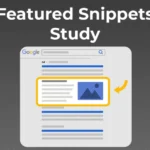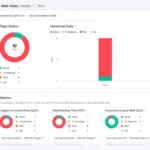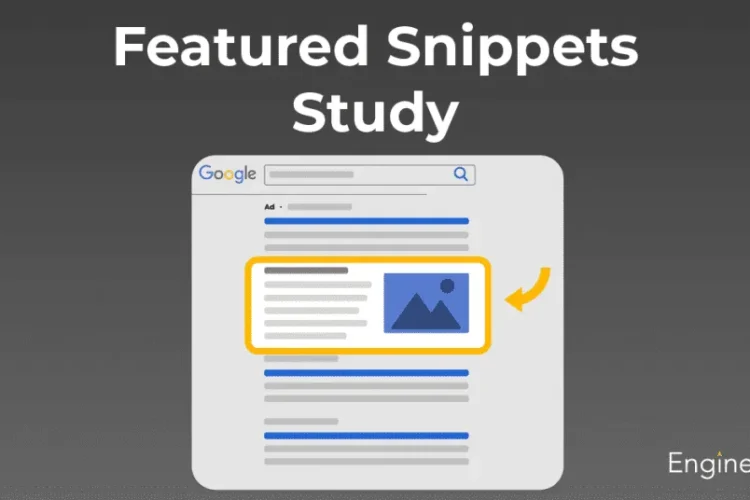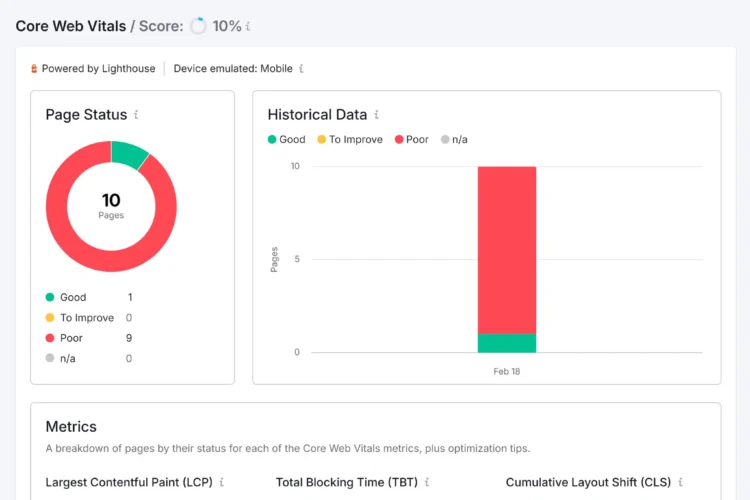
Introduction
Search Engine Optimization (SEO) is essential for driving traffic, improving visibility, and growing your online presence. However, many websites fail to reach their full potential due to common SEO mistakes. Avoiding these pitfalls can save you time, effort, and resources while improving your website’s rankings.
In this blog, we’ll explore the most common SEO mistakes and provide actionable tips to fix them.
1. Ignoring Keyword Research
Mistake: Many websites target generic or highly competitive keywords without understanding what their audience is searching for.
Impact: Low search visibility, minimal traffic, and poor ROI.
Solution:
- Conduct thorough keyword research using tools like Google Keyword Planner, Ahrefs, or SEMrush.
- Target a mix of short-tail and long-tail keywords relevant to your niche.
- Analyze search intent to match the content with user needs.
2. Poor On-Page SEO
Mistake: Neglecting on-page SEO elements like meta titles, headings, URLs, and internal linking.
Impact: Search engines struggle to understand your content, leading to lower rankings.
Solution:
- Optimize meta titles and descriptions with target keywords.
- Use proper heading tags (H1, H2, H3) for structured content.
- Include relevant internal and external links.
- Ensure URLs are clean and descriptive.
3. Duplicate or Thin Content
Mistake: Publishing duplicate content or content with little value.
Impact: Search engines may penalize your site or ignore pages, reducing traffic.
Solution:
- Create unique, high-quality, and informative content.
- Avoid copying content from other websites.
- Regularly audit your site for duplicate content issues.
4. Neglecting Mobile Optimization
Mistake: Not optimizing your website for mobile devices.
Impact: Poor user experience, high bounce rates, and lower mobile rankings.
Solution:
- Use responsive design to ensure your website looks great on all devices.
- Optimize images and reduce page load time.
- Test mobile usability using Google’s Mobile-Friendly Test tool.
5. Ignoring Technical SEO
Mistake: Overlooking website speed, crawl errors, broken links, or XML sitemaps.
Impact: Search engines may struggle to index your website properly, affecting rankings.
Solution:
- Use tools like Google Search Console to identify and fix crawl errors.
- Optimize page speed and site performance.
- Submit an updated XML sitemap to search engines.
6. Overlooking Backlinks or Using Spammy Links
Mistake: Not building backlinks or using low-quality link-building tactics.
Impact: Weak domain authority and potential penalties from Google.
Solution:
- Focus on acquiring high-quality, relevant backlinks.
- Avoid buying links or participating in link farms.
- Leverage guest posting, influencer outreach, and content promotion.
7. Focusing Only on Search Engines, Not Users
Mistake: Creating content solely for SEO without considering user experience.
Impact: High bounce rates, low engagement, and poor conversions.
Solution:
- Write content that solves real problems for your audience.
- Improve readability with short paragraphs, bullet points, and visuals.
- Enhance UX with clear navigation, fast-loading pages, and responsive design.
Conclusion
Avoiding SEO mistakes is just as important as implementing strategies. By focusing on proper keyword research, on-page and technical SEO, mobile optimization, and user experience, you can prevent common pitfalls that hurt your rankings.
Remember: SEO is an ongoing process. Regularly audit your website, stay updated with Google algorithm changes, and consistently produce high-quality content for lasting results.
FAQs
1. How can ignoring search intent affect my website traffic?
If your content doesn’t align with what users are actually searching for, it may rank poorly or fail to engage visitors, leading to lower traffic and higher bounce rates.
2. What are some subtle on-page SEO issues that can reduce rankings?
Issues like missing alt text for images, poorly structured headings, slow-loading pages, and weak internal linking can all affect how search engines interpret and rank your website.
3. Can outdated content harm my SEO performance?
Yes. Search engines prefer fresh, up-to-date content. Outdated information can reduce credibility, lower rankings, and discourage users from sharing or linking to your pages.
4. Why is ignoring website analytics a mistake for SEO?
Without analyzing metrics like user behavior, bounce rates, and conversion rates, you can’t identify what’s working or failing, making it harder to optimize your site effectively.
5. How do hidden technical SEO errors affect my rankings?
Errors like broken links, missing schema markup, duplicate meta tags, or crawl issues can prevent search engines from indexing your site properly, limiting your visibility.
6. Can over-optimizing for keywords backfire?
Yes. Keyword stuffing or forcing keywords unnaturally in content can hurt readability, decrease user engagement, and even trigger penalties from search engines.
7. How does ignoring user experience impact SEO?
Even with strong SEO, a confusing layout, slow site speed, or poor navigation can increase bounce rates and reduce rankings because search engines prioritize user satisfaction.
8. Why is link quality more important than quantity?
Many low-quality links can harm your site’s credibility and trigger penalties, whereas a few authoritative and relevant links boost trust and search engine rankings.
9. What role does content formatting play in SEO success?
Well-structured content with headings, bullet points, and visual elements improves readability, engagement, and the likelihood of being featured in search snippets.
10. How often should I audit my website for SEO mistakes?
Regular audits, at least every 3–6 months, help identify technical issues, broken links, outdated content, and other pitfalls before they negatively impact rankings.





